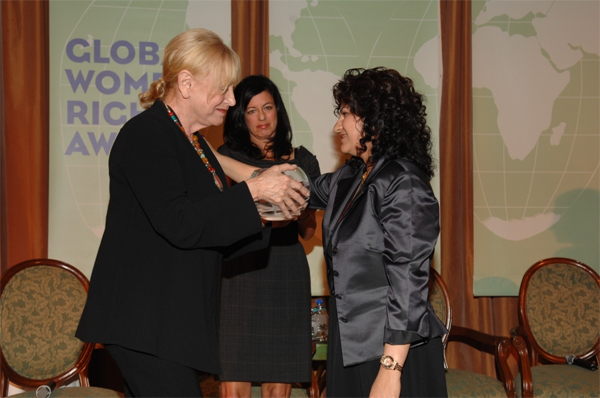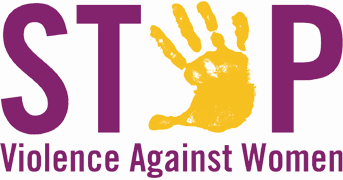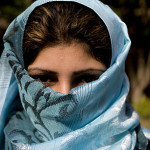Ravaged by rights groups and upbraided by the U.S. for failing to take measures against human trafficking, the Iraqi government has been quietly working on a draft law to tackle the scourge. Baghdad was prodded into action late last year, after the release of the U.S. State Department’s “Trafficking in Persons Report,” according to Human Rights Minister Wijdan Mikhail Salim. “Let’s say it was a tough report about the situation in Iraq, and in so many cases it was right,” she says. The report was damning. Baghdad, it concluded, “offers no protection services to victims of trafficking, reported no efforts to prevent trafficking in persons and does not acknowledge trafficking to be a problem in the country.” As a TIME.com story detailed, trafficking in Iraq is a shadowy underworld where nefarious female pimps hold sway and impoverished mothers sell their teenage daughters on the sex market.
The situation is slowly changing. The draft law, a copy of which was obtained by TIME, imposes tough penalties, including life imprisonment and a fine not exceeding 25 million dinars ($21,000) for traffickers if the victim “is under 15, or a female, or has special needs.” The same punishment applies if the crime was committed by kidnapping or force, or if the criminal “is a direct or distant relative or the victim’s caretaker or husband or wife,” a tacit acknowledgment that victims are often trafficked by people they know.
The years of war and instability after the fall of Saddam Hussein’s regime in 2003 have provided unfettered opportunities for criminal elements, including traffickers, to profit. Nobody knows for certain how many Iraqi women and children have been sold into slavery since then. Some Baghdad-based activists put the figure in the tens of thousands, but there are no official numbers due to the nature of the business and the reluctance of victims or their families to come forward in a society where female virginity is prized and the stigma of compromised chastity can be a permanent social stain — or worse.
The State Shura Council, a legal advisory body that reviews drafts before they can be passed to the Cabinet and parliament, is vetting the anti-trafficking bill. It’s not the first of its kind in Iraq. The old penal code included a law issued in 1969 and amended in the 1990s that outlawed and penalized trafficking.
But laws are only one aspect of the battle. Enforcing them is another. Activists complain that corruption within the security forces is enabling traffickers to operate with impunity. Many traffickers have “very good ties with the police,” says Yanar Mohammed, who heads the Organization of Women’s Freedom in Iraq, a group at the forefront of the fight against trafficking. Young women who have attempted to escape from brothels have sometimes been returned by police officers, she says. “It turns out [the cops] were loyal customers.” Saad Fath Allah, director of the National Institute of Human Rights and the head of an inter-ministerial anti-trafficking committee, acknowledges that a law is only the first step. “We need to enhance the independence of the judiciary,” he says. “There are many criminals who have been released.”
There are other challenges. Poverty and certain social traditions make some vulnerable members of society easy targets for traffickers. Although Iraq’s constitution grants equal rights to women, their traditional role of domesticity often makes them dependent on male relatives for basic needs. War widows are rendered economically marginalized and vulnerable to exploitation. Salim, the Human Rights Minister, knows alleviating female poverty is key but says there are other considerations. “I can’t ask to have jobs for women while the men don’t have jobs,” she says. “Here in our society, the first thing is for the men.”
There are even tougher issues to tackle. According to several activist organizations, traffickers ferry their victims overseas illegally on forged passports or “legally” through forced marriages, sometimes abusing the Islamic tradition that allows a man to have four wives. A trafficker “will marry four, he will take them to Syria, it’s legal, and divorce them there, and he comes back and does it again. How can we stop it?” Salim says. Similarly, the principle of temporary marriages, known as al-Mut’a in Shi’ite Islam and al-Misyar in Sunni Islam (they can extend anywhere from two hours to six months in the Shi’ite tradition), has also been exploited to trade in women. The draft law does not address how victims are trafficked, avoiding the sensitive subject of the abuse of religious principles, but says it is an offense to transport people with the purpose of trading in them.
Still, the fact that trafficking is even being acknowledged is a significant and welcome development, says Dalal Rubaie, a senior activist with the Organization of Women’s Freedom in Iraq. She wasn’t aware of the draft’s existence until TIME contacted her. The government says it has reached out to key NGOs in drafting the law, but that was news to some of the organizations it cited, including the prominent Al-Amal Association, headed by Hanaa Edwar.
The interplay between the government and women’s rights NGOs is fraught with suspicion. Salim readily admits that “there’s no trust” between the two groups. Yanar Mohammed’s organization has been petitioning, unsuccessfully thus far, to be legally registered as an NGO and women’s shelter, which would allay fears that it could be shut down at any moment. It has also sought, but been refused, permission to visit Baghdad’s women’s prison, where it previously identified victims of trafficking who were locked up for offenses committed as a result of being trafficked, like having false documents or prostitution.
Salim says some NGOs used the prison visits “in a political way, or in the media not in the right way.” The government will visit the prisons and set up women’s shelters, she says, as well as train select NGOs to help fulfill those roles. Some old habits clearly die hard. But new ones are slowly forming. “Many people say there is no trafficking in Iraq — they refuse to admit this phenomenon,” says Fath Allah, head of the inter-ministerial committee. “But we say that this exists and we are working to prevent it from happening. There will be an anti-trafficking law.”
By RANIA ABOUZEID / BAGHDAD
Source: http://www.time.com/time/world/article/0,8599,1890728,00.html




